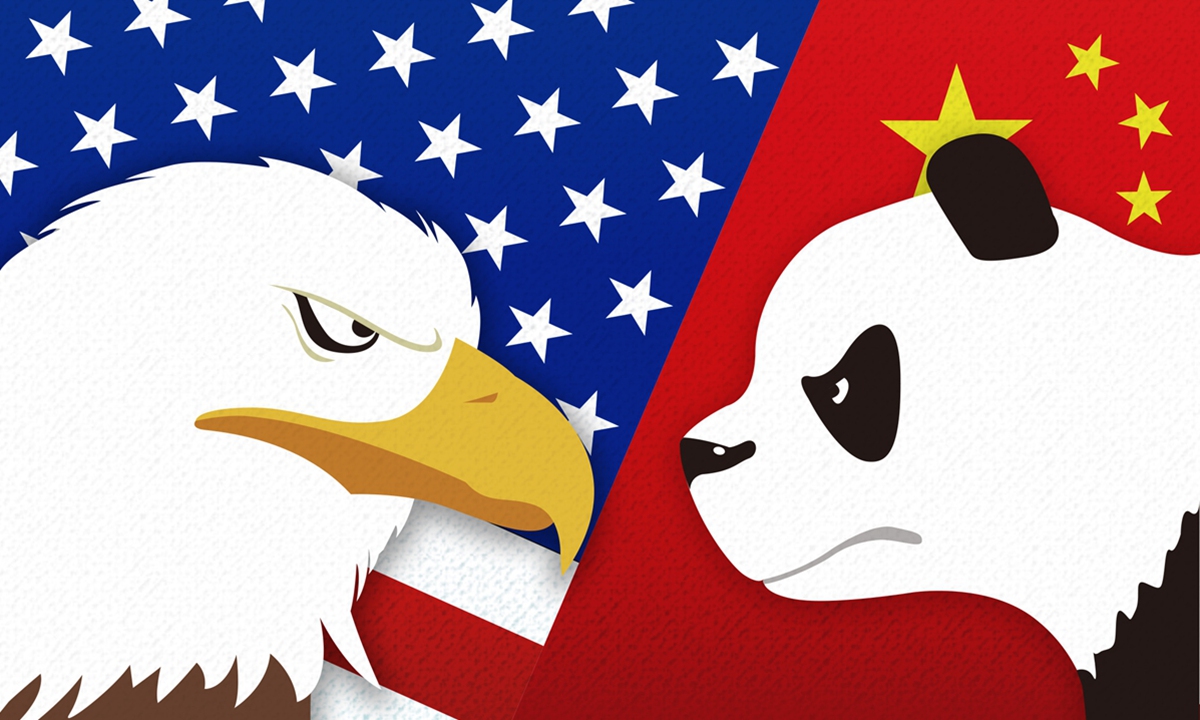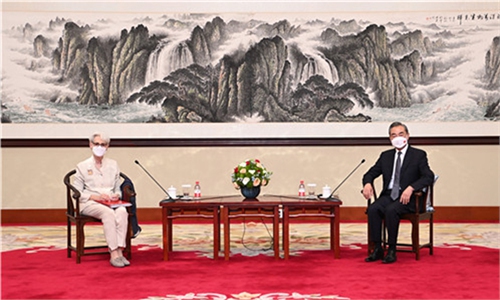US Senate’s legislation in support of Taiwan’s participation in WHA merely ‘political posture’

China US Illustration: Liu Rui
Days after US Deputy Secretary of State Wendy Sherman visited China and met with top Chinese diplomats in Tianjin during which she claimed that the US adheres to the one-China principle, the US Senate sang a different tune by passing a legislation to strengthen support for Taiwan island's participation in World Health Organization (WHO)'s World Health Assembly (WHA) on Wednesday, drawing firm opposition from China with mainland experts saying the move is more of a "political posture" as part of US play of "Taiwan card."
The US Senate Foreign Affairs Committee passed the legislation to direct the US State Department to develop a strategy to assist the island of Taiwan in obtaining observer status at the WHA, the decision-making body of the WHO, ahead of its annual global assembly from November 29 to December 1.
To prevent China-US relations from further deteriorating or even getting out of control, Chinese State Councilor and Foreign Minister Wang Yi elaborated China's three bottom lines — the US should not challenge, smear or seek to subvert the Chinese path and system of socialism with Chinese characteristics, should not seek to interrupt or disrupt China's development, should not violate China's national sovereignty or territorial integrity — during his meeting with Sherman on Monday.
Xin Qiang, a cross-Straits expert and deputy director of the Center for American Studies at Fudan University in Shanghai, told the Global Times on Thursday that it remains questionable that the legislation would eventually become a law bill, which depends on House of Representatives' approval or not, and the Senate's passage of the legislation is merely a "political posture," as part of US play of "Taiwan card."
Xin pointed out that the Senate and Biden administration have divergence on the Taiwan question as the administration tries to keep cautious on the question considering the China-US relations while the Senate is trying to press the administration to push forward the Taiwan's participation in international organizations.
Zhao Lijian, spokesperson of the Chinese Foreign Ministry, said at a press conference on Thursday that Taiwan question is the most important and sensitive issue in China-US relations, and the one-China principle is the political foundation of the bilateral ties as well as the general consensus of the international community.
The legislation seriously violates the one-China principle, three China-US joint communiqués and basic principle affirmed in the United Nations and WHA resolutions, which China is firmly opposed to, Zhao said.
He noted that Chinese central government attaches great importance to the health and well-being of Taiwan compatriots and has made proper arrangements for Taiwan's participation in global health affairs under the one-China principle.
Zhao urged the relevant US' parties to stop push forward the legislation, stop sending wrong signals to the Taiwan secessionists and stop assisting Taiwan authority to expand the so-called "international space."
Xin said that the US' support of Taiwan back to the WHA was never a health issue but political calculation aimed at containing and suppress the Chinese mainland in the international community by playing the "Taiwan card."
The island of Taiwan had attended the WHA as an observer under the name "Chinese Taipei" since 2009 until 2016, a special arrangement made through cross-Straits consultations on the basis of the 1992 Consensus that embodies the one-China principle upheld by both sides of the Taiwan Straits.
However after Tsai Ing-wen of the secessionist Democratic Progressive Party was elected as the regional leader, the DPP abandoned the 1992 Consensus and jeopardized the one-China principle, unilaterally undermining the political foundation for cross-Strait consultations.


